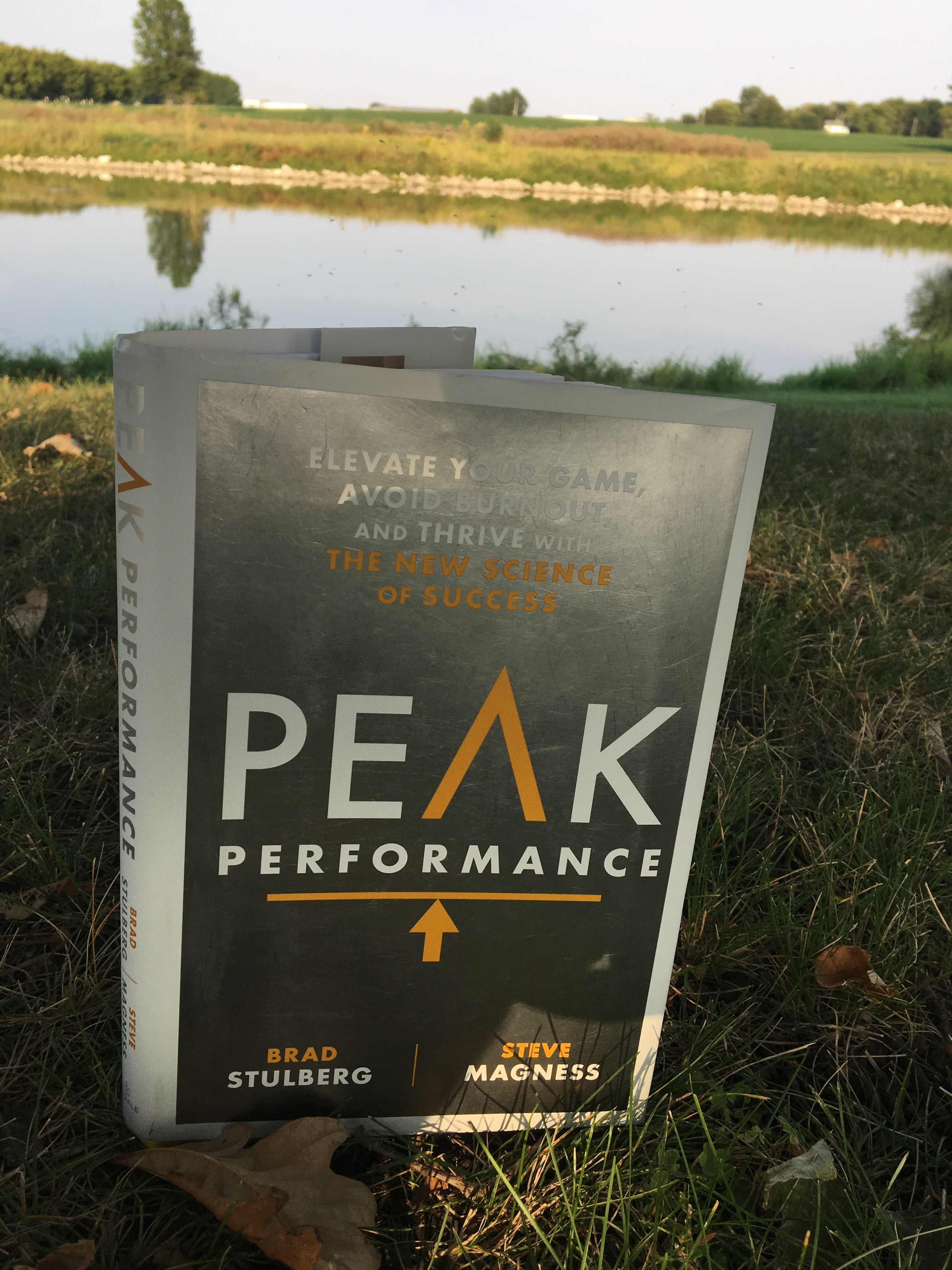
Think about a time in your work or life when you felt truly at the top of your game. Maybe crossing the finish line after an invigorating 10k race, giving a presentation that left you and your audience completely inspired, or adding fine details to a painting that just kept getting better and better.
How did that experience feel?
What if you could feel that way more often?
In the book Peak Performance, Brad Stulberg, a former business consultant, teamed up with athletic coach Steve Magness to explore the concept and, more specifically, how we can experience more of it in our work, fitness, and lives. The authors incorporate a great deal of sound research to support their ideas, and hearing their examples from both business and athletic perspectives truly adds to the book’s flavor.
As a coach for high achievers who often crave those feelings of accomplishment that accompany peak performance, I read this book, as I typically do, with my clients, family members, and friends in mind. A few standout points:
Multitasking does not serve you.
“For 99% of us,” the authors state, “multitasking is nothing more than effective delusional thinking.” Science has supported this for years: We are far less effective when we jump from activity to activity, trying to do it all at once, than when we experience deep and focused work.
If you think you’re part of the 1% that can smoothly juggle projects and email and social media notifications and interruptions with no loss of productivity or no gain of stress, you may want to re-examine that thought. I love the example Stulberg and Magness offer: “Just imagine if a runner doing intervals on the track came to a complete stop to check her phone after each and every notification.” Doesn’t that put those ‘quick checks’ in perspective?
Mindset is key.
Researchers like Carol Dweck, Alia Crum, and others have scientifically shown how our mindset shapes our reality – physically, mentally, emotionally, and otherwise. And great news: If we’re not pleased with it, we can change it!
The authors point out how Olympic athletes tend to look calmer at the starting line – about to embark on the race of their lives – than many “weekend warriors” at a local 5k race. This is not because Olympians don’t get nervous – they’re human! But when they feel the butterflies and nerves, they tell themselves “I am excited!” instead of “I’m so stressed” – and their bodies respond. This shift in mindset, research tells us, can be even more effective on your performance than trying to calm yourself down.

Purpose leads the way.
Much to my delight, the entire final section of the book is dedicated to purpose. “Once you’ve developed a purpose,” advise Stulberg and Magness, “do whatever it is you can to build a life that allows you to fulfill it. The closer you can move to…living completely in alignment with your purpose, the better, happier, and healthier you’ll be.”
I agree wholeheartedly; consequently, so does the research. If your purpose feels unclear, consider enrolling for Spark where you will leave not only with your Purpose Statement written, but also numerous examples of people living theirs out in work, leadership, and life.
Overall, Peak Performance is an insightful book that will likely prompt you into action. Other terrific topics addressed include deliberate practice (vs. just any practice) to gain mastery, the power of (even quirky) routines, and the great value in showing up. “The best performers are not consistently great,” explain the authors, “but they are great at being consistent. They show up every day and they do the work.”
Think back to that peak performance you recalled at the start of this article, and come up with a few others. What patterns do you see? What supports your ability to perform at your best? Blend that with the ideas from this book and the supporting research, and you’ve got yourself a plan for sustainable success!





